Cell—AD重磅:CXCL16-CXCR6通路激活可能是CD8+T细胞进入认知障碍患者脑脊液的分子机制
时间:2022-12-19 21:01:34 热度:37.1℃ 作者:网络
中文摘要
脑脊液(CSF)含有被严格调控的免疫系统。然而,人们缺乏关于CSF免疫如何随着衰老或神经退行性疾病而改变的知识。在这里,科学家对45名54至82岁认知正常受试者的CSF进行了单细胞RNA测序。他们发现随着年龄的增长,单核细胞中脂质转运基因的上调。然后,他们将该队列与14名认知障碍受试者进行了比较。在认知受损的受试者中,单核细胞中脂质转运基因的下调与CD8T细胞的细胞因子信号改变同时发生。认知障碍受试者克隆CD8+T效应记忆细胞上调C-X-C基序趋化因子受体6(CXCR6)。CXCR6配体C-X-C基趋化因子配体16(CXCL16)在认知受损受试者的脑脊液中升高,提示CXCL16-CXCR6信号激活是抗原特异性T细胞进入大脑的机制。总之,这些结果揭示了健康大脑衰老和认知障碍期间的脑脊液免疫失调。
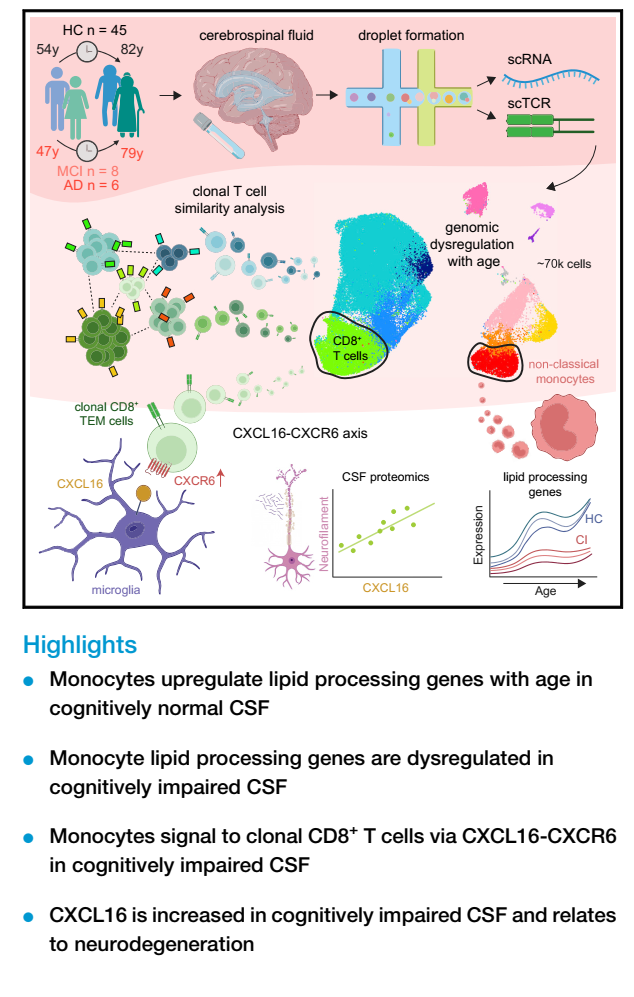
英文摘要
Cerebrospinal fluid (CSF) contains a tightly regulated immune system. However, knowledge is lacking about how CSF immunity is altered with aging or neurodegenerative disease. Here, we performed single-cell RNA sequencing on CSF from 45 cognitively normal subjects ranging from 54 to 82 years old. We uncovered an upregulation of lipid transport genes in monocytes with age. We then compared this cohort with 14 cognitively impaired subjects. In cognitively impaired subjects, downregulation of lipid transport genes in monocytes occurred concomitantly with altered cytokine signaling to CD8 T cells. Clonal CD8 T effector memory cells upregulated C-X-C motif chemokine receptor 6 (CXCR6) in cognitively impaired subjects. The CXCR6 ligand, C-X-C motif chemokine ligand 16 (CXCL16), was elevated in the CSF of cognitively impaired subjects, suggesting CXCL16-CXCR6 signaling as a mechanism for antigen-specific T cell entry into the brain. Cumulatively, these results reveal cerebrospinal fluid immune dysregulation during healthy brain aging and cognitive impairment.
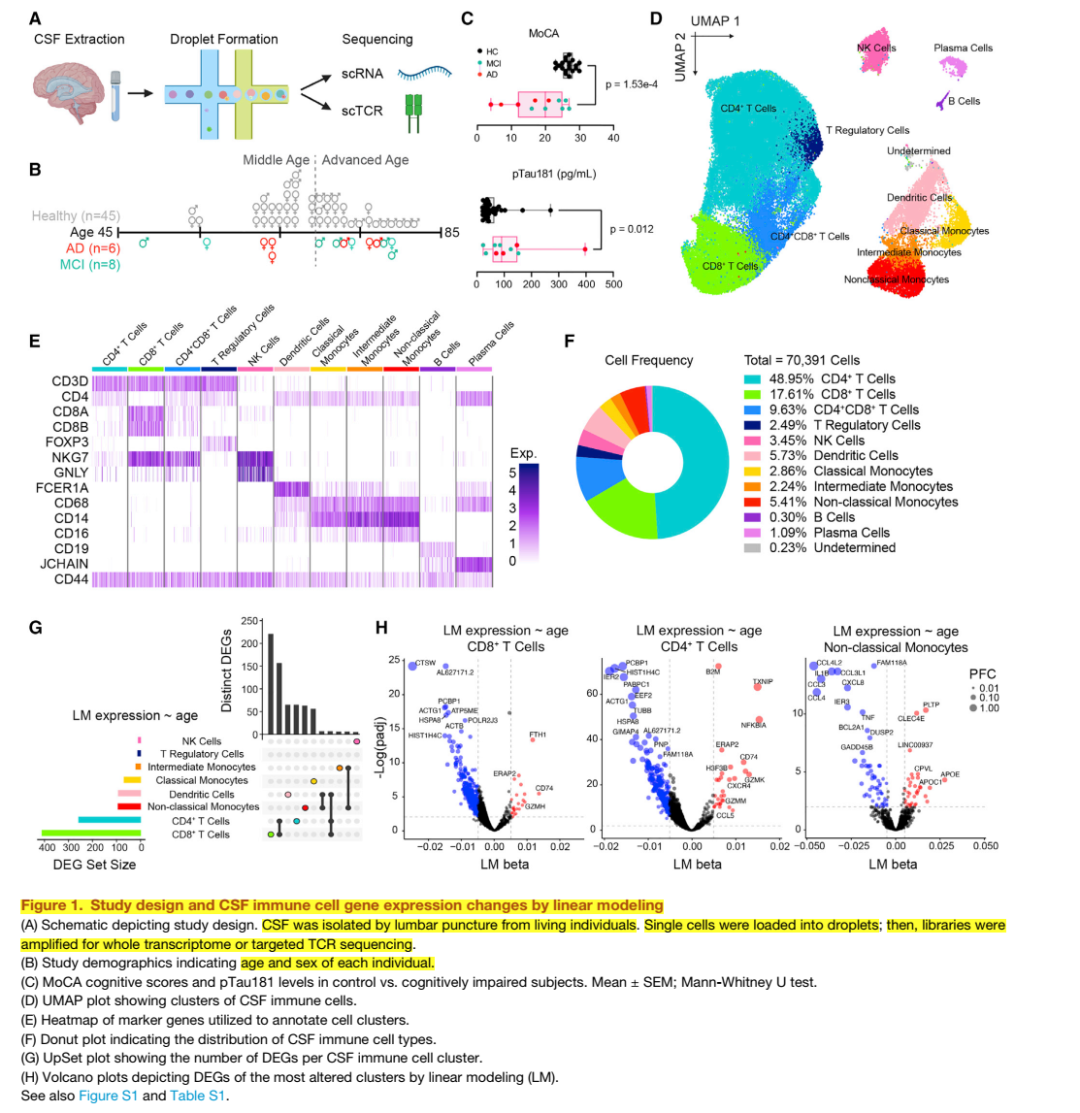
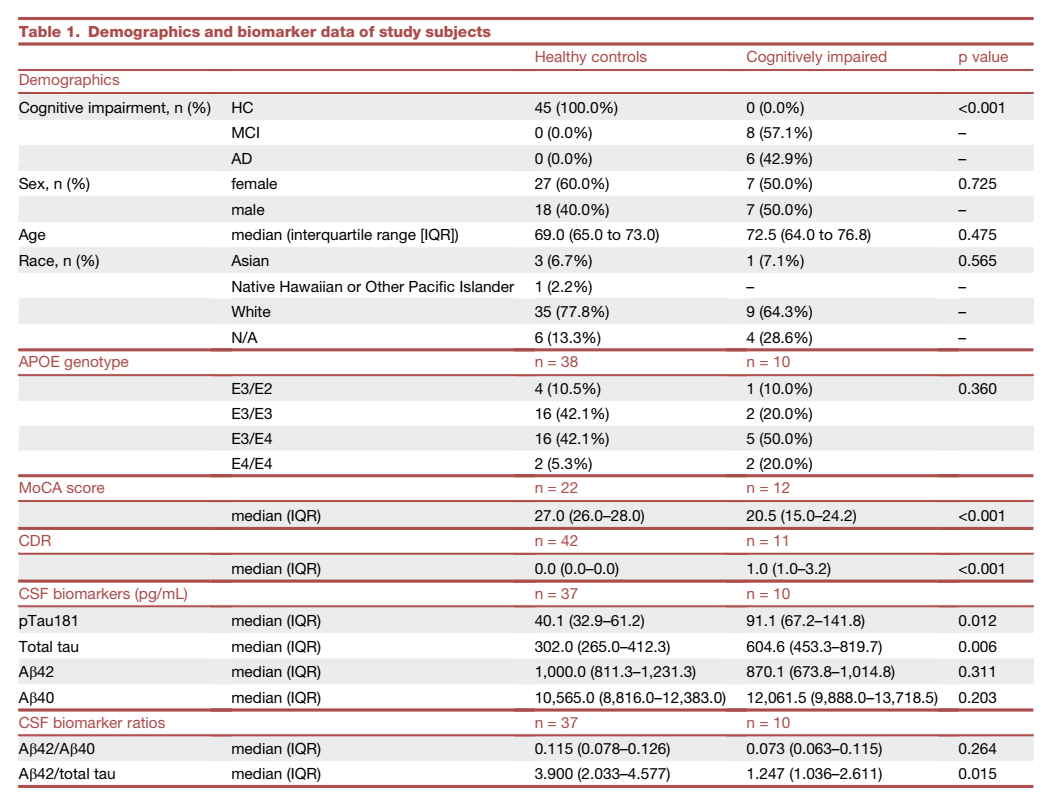
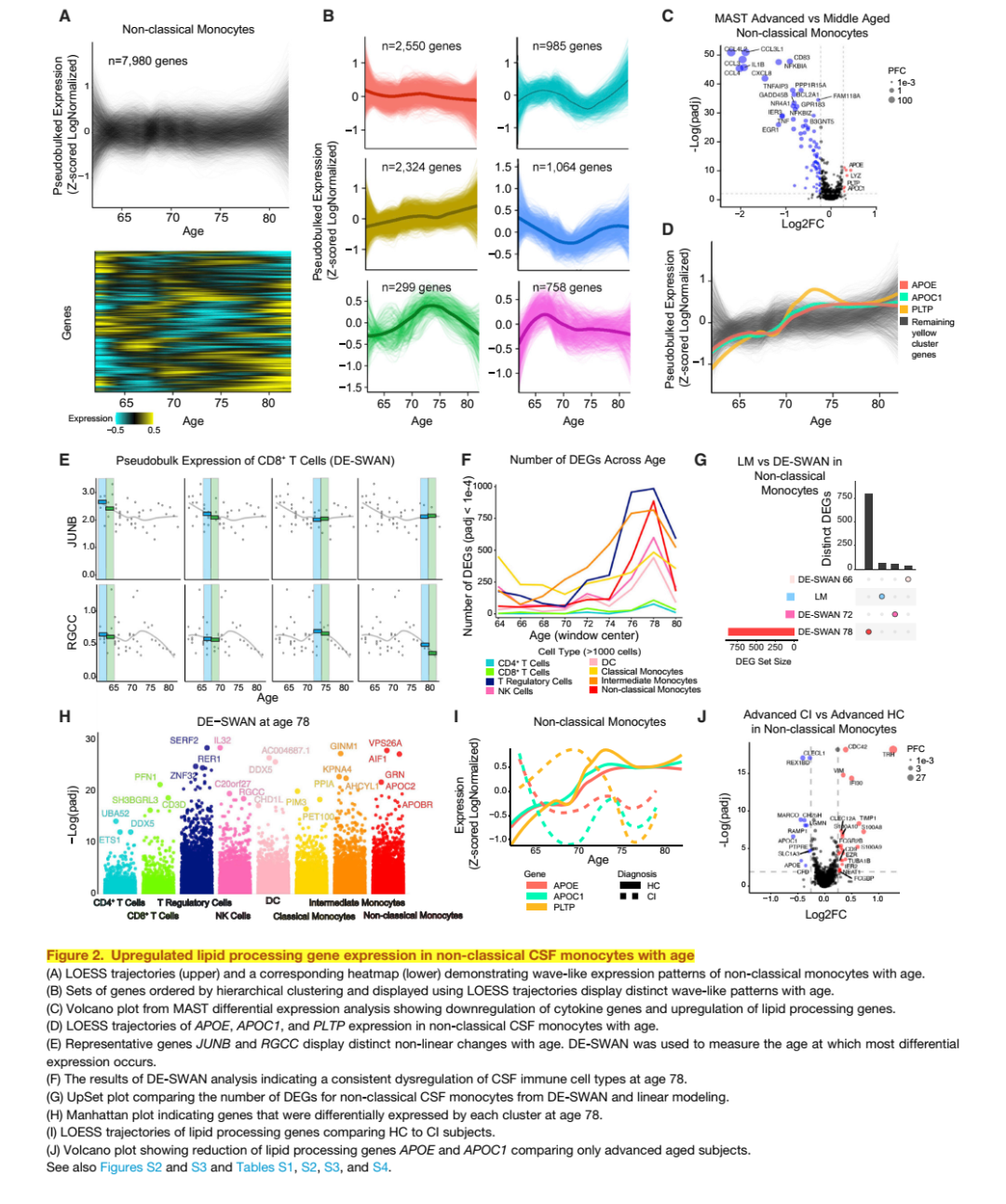
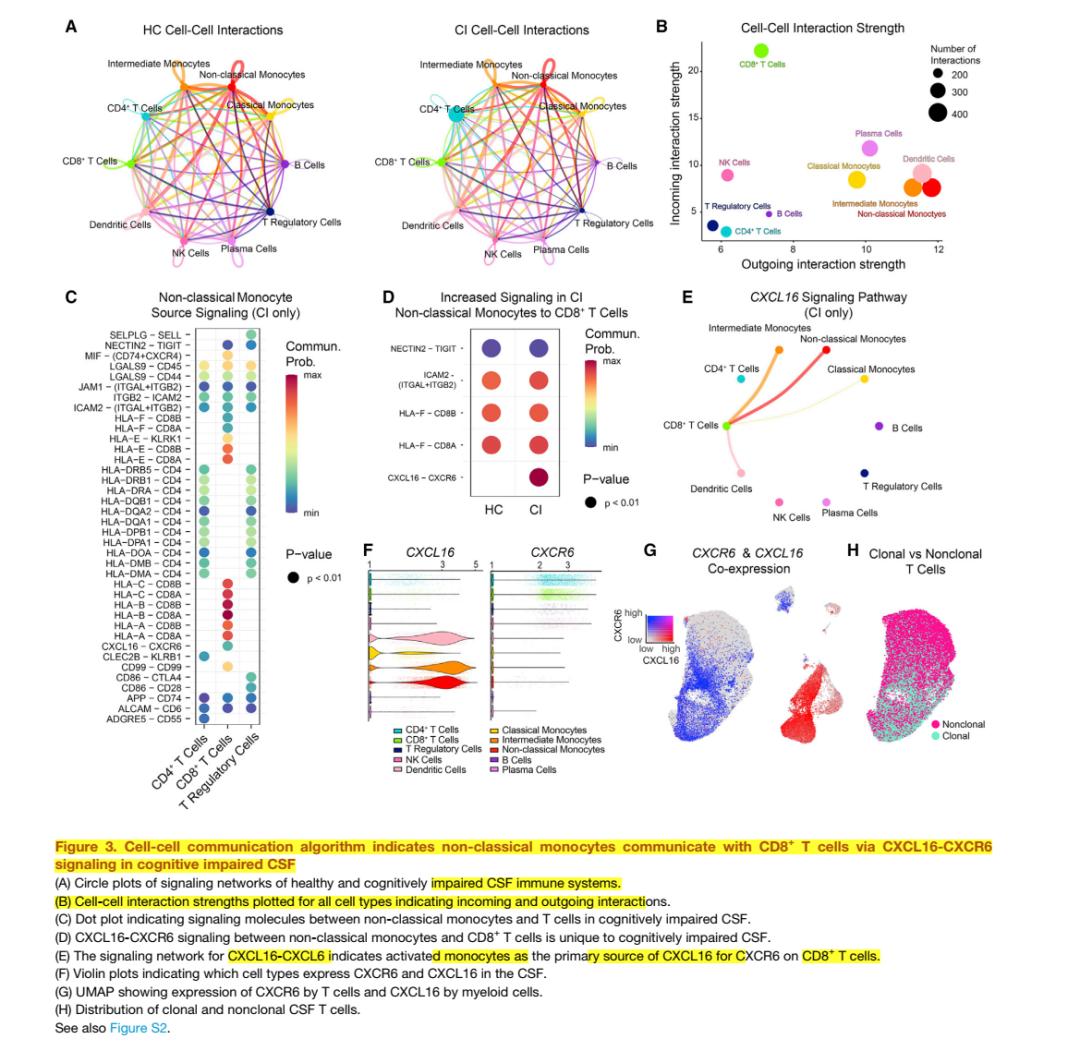
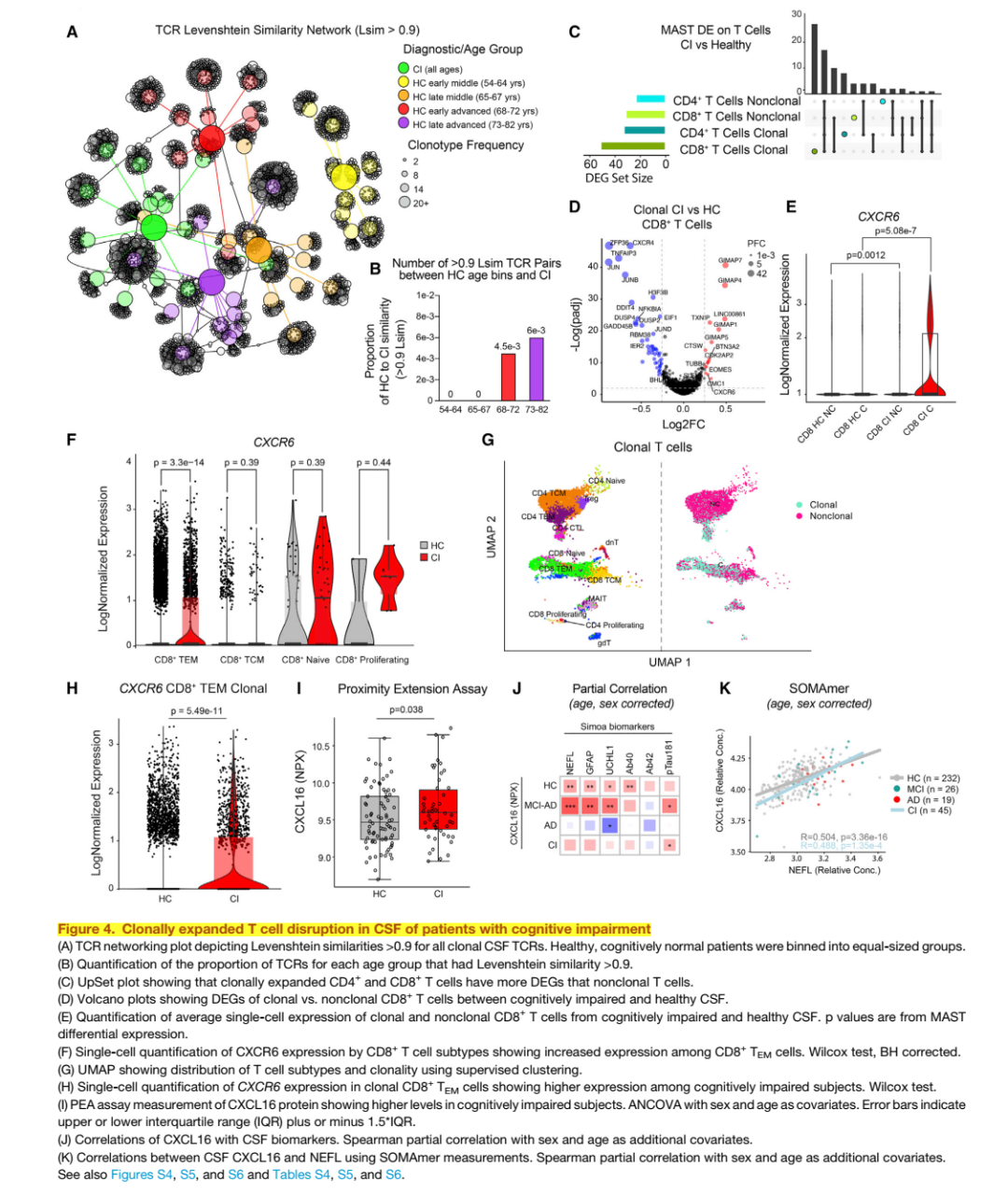
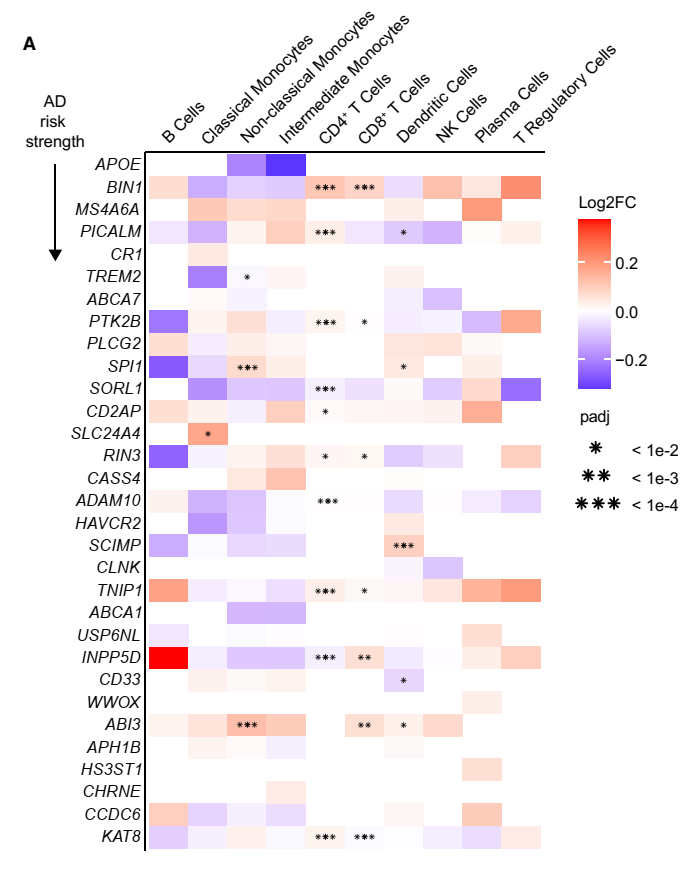
参考文献:Cerebrospinal fluid immune dysregulation during healthy brain aging and cognitive impairment. Cell. 2022 Dec 7;S0092-8674(22)01463-5. doi: 10.1016/j.cell.2022.11.019. Online ahead of print.
: , 。 视频 小程序 赞 ,轻点两下取消赞 在看 ,轻点两下取消在看


